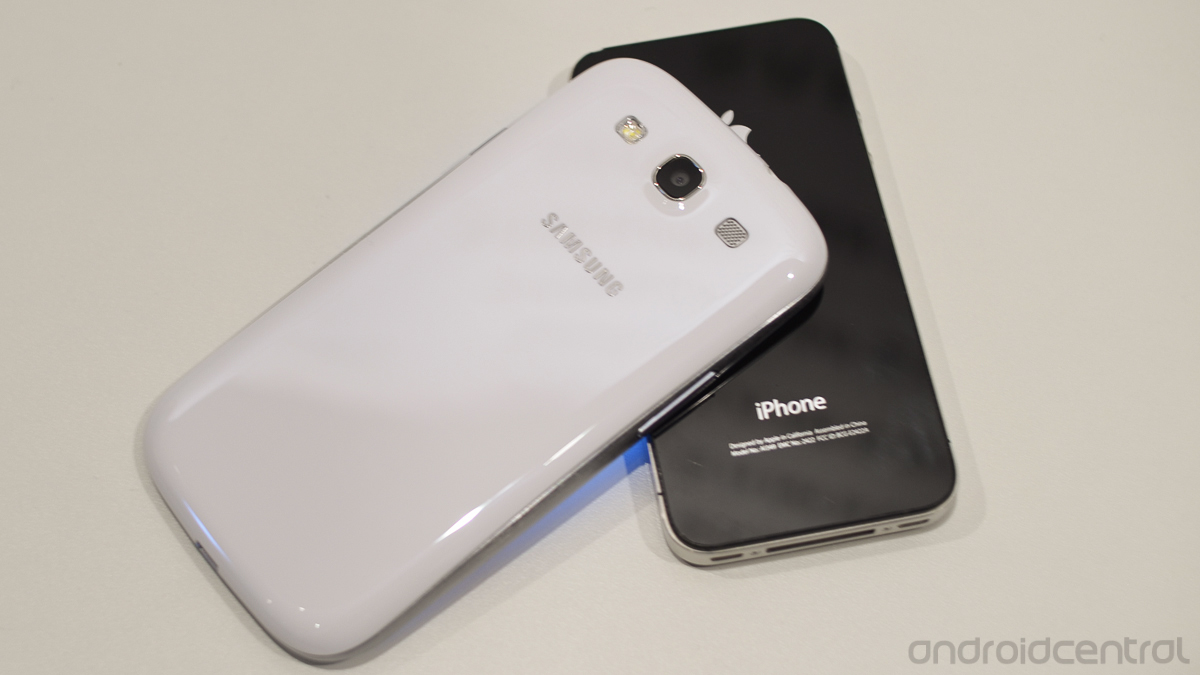Google, others, reportedly warned Samsung not to copy Apple designs

iMore offers spot-on advice and guidance from our team of experts, with decades of Apple device experience to lean on. Learn more with iMore!
You are now subscribed
Your newsletter sign-up was successful
As Apple and Samsung head to trial over patent and trade-dress issues, internal documents suggest Samsung was warned by Google, their own product design group, and others to be make their devices more distinct from Apple's. John Paczkowski, writing for AllThingsD, reports:
- In February 2010, Google told Samsung that Samsung’s “P1” and “P3” tablets (Galaxy Tab and Galaxy Tab 10.1) were “too similar” to the iPad and demanded “distinguishable design vis-à-vis the iPad for the P3.”
- In 2011, Samsung’s own Product Design Group noted that it is “regrettable” that the Galaxy S “looks similar” to older iPhone models.
- As part of a formal, Samsung-sponsored evaluation, famous designers warned Samsung that the Galaxy S “looked like it copied the iPhone too much,” and that “innovation is needed.” The designers explained that the appearance of the Galaxy S “[c]losely resembles the iPhone shape so as to have no distinguishable elements,” and “[a]ll you have to do is cover up the Samsung logo and it’s difficult to find anything different from the iPhone.”
Samsung plans to show that Apple too derived their designs from previous products, including Sony, and that Samsung was working on similar designs previous to the iPhone.
From phone casings to interfaces to accessories it would impossible to look at Samsung's work up until recently and think they weren't deliberately making their stuff look like Apple's. The question's ultimately -- does that matter? Fridges, TVs, cars, home theater components, etc. all look remarkably similar from one vendor to another. There are entire industries where knock off products are prevalent. Should phones or tablets be any different?
On one hand, we like to think that if we had a great, innovative idea and spend a lot of time and money bringing it to market, someone else couldn't just wait in the wings, copy it, and potentially steal our success. And if they were allowed to, it might make us less likely to keep spending time and money on innovation, because copying is easier.
On the other hand, almost everything is a remix. Almost all ideas have come before. The talent and skill is knowing what to copy and how to bring it all together and make it a best-in-class product that becomes a mainstream success. Yet arbitrating focused, tasteful copying and lazy, slavish copying doesn't exactly sound like the work of a court.
Google is now saying Apple's iOS technology has been so successful, it should be considered a de facto standard. Samsung and others are still arguing they should be allowed to use their standards-essential patents to combat Apple's proprietary patents, and Apple is saying they shouldn't have to be the inventor for the world.
If Palm decided to wade into the patent and trade dress wars, how well would Apple fair? If HTC started putting our gear that looking almost identical to the Galaxy S3 or Galaxy Note, down to the naming conventions, icons, and power adapters, would Samsung legal be okay with that?
iMore offers spot-on advice and guidance from our team of experts, with decades of Apple device experience to lean on. Learn more with iMore!
Source: AllThingsD

Rene Ritchie is one of the most respected Apple analysts in the business, reaching a combined audience of over 40 million readers a month. His YouTube channel, Vector, has over 90 thousand subscribers and 14 million views and his podcasts, including Debug, have been downloaded over 20 million times. He also regularly co-hosts MacBreak Weekly for the TWiT network and co-hosted CES Live! and Talk Mobile. Based in Montreal, Rene is a former director of product marketing, web developer, and graphic designer. He's authored several books and appeared on numerous television and radio segments to discuss Apple and the technology industry. When not working, he likes to cook, grapple, and spend time with his friends and family.
